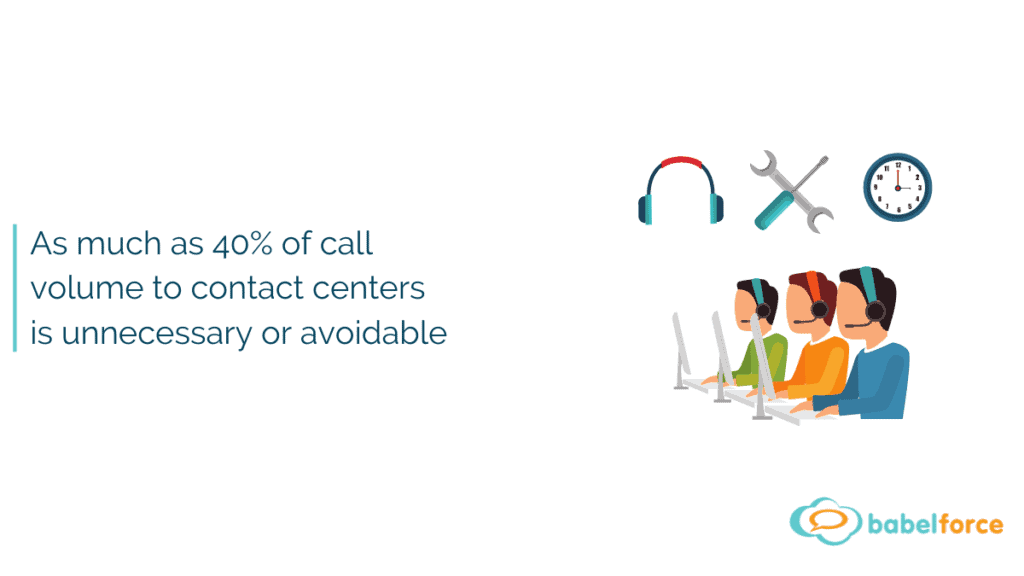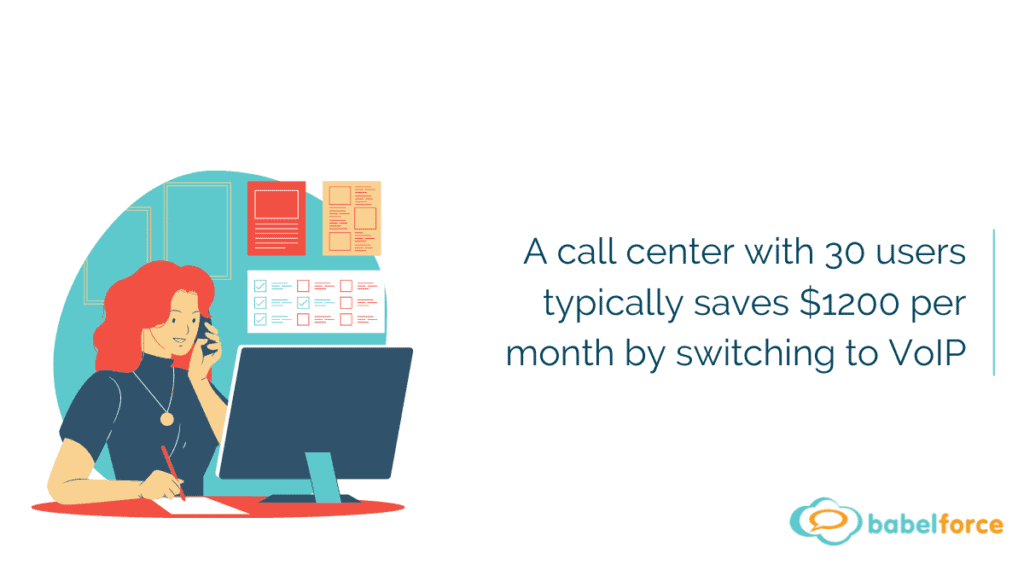VoIP phone services are the future of telephony. In many countries, it’s already near impossible to get a phone line that doesn’t use internet technology instead of analog lines.
And even if you can technically still get an analog line, there are many reasons to choose VoIP instead. For example, you’ll be able to provide more advanced services that customers love, and it’s cheaper to set up than analog phone lines.
In this article, we’ll look at why you should choose VoIP phone services over analog ones if you have the option to do so.
(Want more articles like this in your inbox? Click here to get our fortnightly CX newsletter.)
This article will cover:
- What are VoIP phone services?
- Advantages of VoIP phone services
- VoIP enables advanced telephony features
What are VoIP phone services?
Voice over Internet Protocol (VoIP) phone services is a technology that allows people to make phone calls over the internet.
The technology turns voice into digital signals that can be sent online. It is the alternative to analog phone services that transmit calls via phone lines.
You’ve almost certainly used VoIP technology. It is a central part of the call-making features of apps like WhatsApp, Skype, or Zoom. Increasingly, it is also taking the place of regular phone lines.
Initially, VoIP was not as reliable as copper phone lines. But as internet connections have improved, VoIP call quality has advanced to the stage where it is as good as, and in many cases better, than analog systems.

Advantages of VoIP phone services
There are many reasons why call centers can benefit from using a VoIP phone system over analog phone lines.
Here are some of the biggest ones.
It’s cheaper to use
VoIP services tend to be cheaper than their analog equivalent.
The first reason is the lack of set up costs. You can run VoIP services from your computer using your existing equipment. There’s no need to install phone lines or connect actual handsets for agents to use.
The second reason is that it costs less to use these services. The exact price you pay depends on the service you choose, but costs typically start at just $10 per line per month.
Wide variety of functions
VoIP services come with a wide variety of phone services. Those include voicemail, call transfers, advanced routing, and IVR.
What’s more, these tools are easy to configure via cloud-based software.

Easy to set up
VoIP phone services are super easy to set up. It can be as simple as signing up for a call center platform and configuring your new phone numbers. Small businesses can have a working phone number set up in minutes.
Enterprise call centers have more complex needs, and you might need to connect other tools, platforms, and hardware to the system.
But it’s still far easier to get set up than when you had to connect multiple phone lines physically.
Location independent
Because VoIP uses internet technology, you aren’t tied to a single location. Agents can log in and handle calls anywhere with an internet connection.
This is important for several reasons:
- It enables remote work. Agents can work at home instead of coming into the office. This is a powerful benefit to offer when hiring. Especially as the pandemic meant many workers are used to this style of working.
- You can hire workers in cheaper locations. Not being tied to an office means you can hire workers to answer your calls in places where wages are lower. You’ll also save money on office space.
- Easier to scale. Growing businesses can use remote workers to rapidly scale their support teams without having to go through the process of finding office space and installing phone lines.
- Temporarily support your team. You can also hire temporary support. For example, a retailer that is much busier over Christmas than the rest of the year can quickly hire remote workers to provide coverage.
- Moving offices is easy. Imagine you need to move to a new office. Bringing your VoIP numbers with you is as easy as logging into your account in your new space.
VoIP enables advanced telephony features
VoIP offers many advanced telephony features. Here are some of them.
Work with caller-ID
Caller-ID is a feature on some phones that shows the receiver who is calling. With VoIP, you can change what appears on these phones before you place a call.
This has several uses. People in your central office can make calls and have the ID show as if the call came from your local office.
Or individual agents can make calls on their phones, but the number customers see will be the office’s central number.
Video calling
VoIP call services may allow users to make video calls. The benefit of this isn’t just that you can see the person you are talking to.
Other use cases include video conferencing, which is when you speak to multiple people at the same time. This can help with complex B2B sales cycles when multiple stakeholders need to come to a decision together.
It also helps with product support. Customer support agents can share their screens to show customers how to use complex product features. Or they can use video to guide people through complex checkout processes, ensuring you don’t miss out on sales.

Call forwarding
Call forwarding is when your system sends incoming calls to a number of your choice.
It is easy to set up on VoIP, and you can forward calls to any other internet-connected device.
This has several use cases:
- Overseas companies can set up local numbers to use in local markets. This makes people feel like the company has an office close by.
- You can route calls to more convenient places. This could be your desk phone, personal phone number, or even voicemail.
- You can redirect calls to different places depending on the time of day. For example, by redirecting calls to out-of-office staff to people currently in work. You don’t have to switch numbers during closed hours or holidays.
VoIP is essential for call centers
At this point, using VoIP is almost a no-brainer when it’s available. Most new businesses will sign up for VoIP over analog phone lines. And in many countries, organizations that still use phone lines will be forced to make the switch soon as old copper networks are turned off.
The good news is that businesses that make the switch have many benefits to look forward to.
They can use the technology to streamline internal processes to make them more efficient. Meanwhile, the customer experience will improve drastically due to all the ways that VoIP helps you manage calls.





